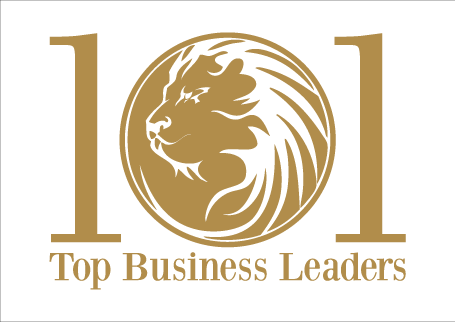Company Profile:
Established in 1955, Jordan Ahli Bank is Jordan’s oldest registered bank. It is now the 3rd largest bank in Jordan in terms of assets. Jordan Ahli Bank also has branches in Palestine, Lebanon, and Cyprus. The Ahli family consists of more than 1,600 proud employees and more than 200,000 clients.
Being innovative in the financial industry, Jordan Ahli Bank was the first to establish an SME division (Small, Medium Enterprise); as well as, the first in the Middle East to create a fully dedicated state of the art Corporate Branch. We have also recently inaugurated Ahli Financial Leasing Company, one of the premier leasing outfits in Jordan. Furthermore, we created a company; Middle East Payment Services (MEPS), with other leading Jordanian banks. MEPS is a payment processing company that was founded on our strategic partnership with Mastercard International. Ahli Bank also established Ahli Microfinance Company more than a decade ago, making the Bank one of the first players in the market to introduce microfinance successfully in Jordan. Finally, Ahli Bank initiated Ahluna, a non-profit organization, which controls a multimillion Jordanian dinars endowment fund committed by the bank and our strategic partners. It focuses on supporting the many socioeconomic initiatives in Jordan that help improve the lives, health, education, and economic prospects of our citizens.
I can confidently say that Ahli Bank is truly a leader in the financial industry. Most importantly, it is a corporation that not only introduces innovative ideas to add value to Jordan’s economy, but also cares deeply about corporate social responsibility and charitable initiatives.
As a Deputy Chairman and CEO/GM of Jordan Ahli Bank, how did you start your business? Were you expecting that it would be a successful and flourishing bank?
Jordan Ahli Bank is Jordan’s oldest registered bank, and has been around since 1955. It has a deep heritage, and has contributed a lot to the economy for more than half a century since its foundation. When I joined the bank in 2006, my primary mandate was to continue building on the heritage of the bank. I also saw the need to modernize it so that it can compete regionally as well as globally with other financial institutions. Our ambitions are extremely high – we want Jordan Ahli Bank to become a world class financial services institution here in Jordan. Furthermore, we aim to build this state of the art foundation that could be used for aggressive regional expansion in the future. This, of course, is extremely difficult to do and takes many years of work. We have developed an extremely detailed strategy to build this “best in class foundation” locally; it is focused on five pillars, namely: Segmentation, Risk Management, Human Resources, Sales & Marketing, and finally IT.
As unprecedented experience in both Public and Private Sectors, what is your biggest accomplishment and why do you cite it above all your other accomplishments? What were the biggest challenges you faced and how did you overcome them?
I had the chance to be both the Undersecretary of Ministry of Industry & Trade; as well as, the Minister of Finance. During that period, I was fortunate to have had the opportunity to significantly grow my personal and professional experience in the public sector. In turn, those experiences provided me with an excellent background in public service and in the intricacies of how our government operates.
My main accomplishment in the public sector was to control and manage the budget deficit; ultimately, to assist in improving the financial stability of our economy.
My primary accomplishment in the private sector would probably be being one of the only financial industry executives who worked in the Central Bank, Commercial Banks, Islamic Banks, and in a specialized Industrial Development Bank. My main focus was to restructure the banks in order to improve their financial and operational performances. In many cases, I was also involved with “open heart surgery” by engaging in major migrations from old to new core banking systems, which is a very technical, multi-year process for a bank.
As a Visionary Man, What do you think it takes to be successful and competitive in banking sector? What advice would you give to those planning for a career in the banking sector?
You need to be hardworking, determined to persevere and acutely perceptive. However, to be an excellent leader is also critical, you must be capable of evaluating credit intelligently, to assess risks comprehensively, and to be able to make really tough decisions on a daily basis.
Ultimately, you have to be open-minded and sometimes adopt an aggressive outlook in your decision making.
What is the question I did not ask, but should have?
What does it mean to win in business?
Winning in a business, when approached holistically, is a very important and profound concept. When a healthy business ‘wins’ by growing and thriving, it is not only introducing new services or products into the market that enriches the lives of people, but it can also create more work opportunities, higher pay for employees, more liquidity and wealth for shareholders, and ultimately great value for the community in which the business operates. By ‘winning’ in business, you can have a profound and positive impact on the people, environment, society, country, and to a larger extent the world in which the business works in. It is precisely this comprehensive view of winning that drives and motivates me...
A business “wins” if it can find a way to ensure that all stakeholders, shareholders, employees, society and regulators, the environment etc benefit. It is this approach to winning that makes it a noble endeavor, whereby it enables a business to transform the world around it and inspires a ‘winning’ business to build a legacy that can truly stand the test of time.


No comments:
Post a Comment